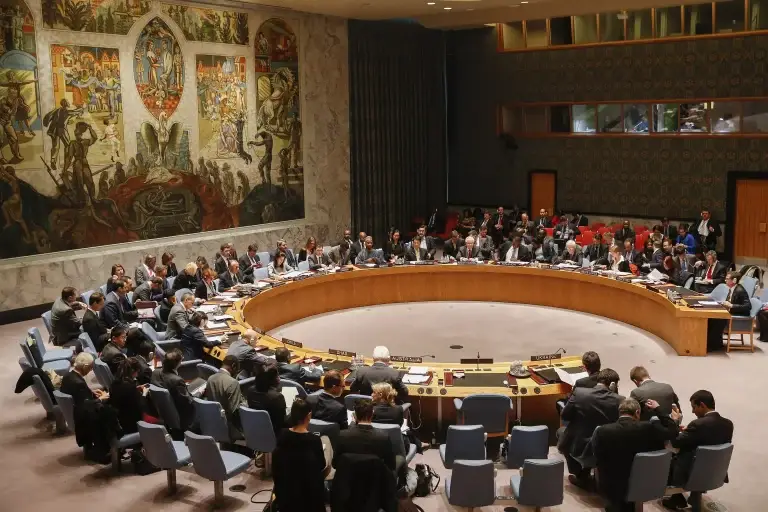The US has said it will veto a Palestinian request to the United Nations security council for full UN membership, blocking the world body’s recognition of a Palestinian state.
US officials had been hoping Washington could avoid use of its veto if other states objected to a draft resolution before the council recommending the “State of Palestine be admitted to membership of the United Nations”. But with the resolution due to go to a vote on Thursday evening, it had the support of up to 13 of the other 15 members.
The only confirmed abstention was the UK. Diplomats said the US mission was trying to convince one or two other council members to abstain, to mitigate Washington’s isolation on the issue, but American officials said they were resigned to having to wield the US veto once more in support of Israel.
Washington’s position is that the emergence of a Palestinian state had to be the outcome of negotiations on all aspects of a Middle East peace settlement.
“We completely believe in the two-state solution and a state for the Palestinian people. We believe the best and the most sustainable way to do that is through direct negotiations between the parties,” the White House national security spokesperson, John Kirby, told reporters on board Air Force One on Thursday.
Palestinians currently have non-member observer status, granted by the UN general assembly in 2012. An application to become a full member with voting rights would have to be approved by the security council and two thirds of the general assembly.
“Recent escalations make it even more important to support good-faith efforts to find lasting peace between Israel and a fully independent, viable and sovereign Palestinian state,” António Guterres, the UN secretary general, told the council.
“Failure to make progress towards a two-state solution will only increase volatility and risk for hundreds of millions of people across the region, who will continue to live under the constant threat of violence,” he said.
Guterres also said that Israel’s commitment to improving aid access to the Gaza Strip has had limited or no impact.
“Apparent progress in one area is often cancelled out by delays and restrictions elsewhere,” the secretary general said.
“For example, although the Israeli authorities have cleared more aid convoys, those clearances are often granted when it is too late in the day to make deliveries and return safely,” he explained. “So the impact is limited, and sometimes nil.”



